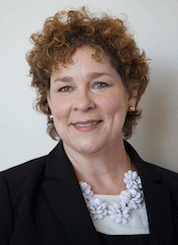This blog post is created from my remarks for Connecticut Nonprofit Association’s Nonprofit Advantage Magazine.
In the study of early American society, there must be an immediate recognition of the conflicting corner stones of our psyche: fierce independence and individuality, and voluntary commitment to the common good and collective action. These inherently conflicting energies are at the very core of democracy, a system that is by the people and for the people, reliant on individual participation and elected representation. From the moment the Protestants set foot in the new country these polar forces framed their world and were the basis of forming our democracy. They came to reap the opportunities of capitalism but at the same time they were steeped in a religious and moral conviction that commanded balance. These early settlers worked to stake their claim and build their homesteads while also forming societies and unions to protect their collective interests.
With the dawn of the industrial revolution fortunes were amassed and modern philanthropy as we know it began to take shape. Carnegie, Rockefeller, Pratt and the like responded to the desire to pay back some of what they had gained to the betterment of society. This was the first golden age when the gap between the rich and the poor became an abyss. Philanthropists stepped in to provide for society out of their wealth in a way that was charitable and benevolent but also paternalistic and with little interest in a democratic frame that would have engaged a broad number of the citizens in the opportunities of a capitalistic society.
Organized philanthropy played a relatively narrow role in providing relief from common plights such as hunger, disease and homelessness, but rather left these roles to charity on an individual level and the growing role of government to provide social services. These early titans of philanthropy were focused on their desire to build great institutions of culture and higher learning within a framework of opportunity. They believed it their role to offer all citizens the opportunity to improve themselves through personal strength and efforts. This tradition of improvement gave little consideration to issues of access or capacity for the majority of the population.
Moving forward in our history, through the era of the Great Depression and the sweeping action that followed by the government to address the gulf between rich and poor, we see the sectors rebalancing and thinking deeply about roles. The New Deal and the deployment of resources and opportunity post WWII, brought about a realignment of the sectors. Government continued to take on enormous responsibility for issues that had previously been seen as the responsibility of the third sector. Following this era and enormous government investments in the social infrastructure, we began to ask questions about accountability and measurement, recognizing the need to demonstrate effect as we spent more and more public dollars to shore up the well-being of our citizens. Then came the era of tax acts granting the third sector and in particular foundations their special tax status. This was a concerted effort to grow and strengthen philanthropy and the charitable sector, recognizing its unique capabilities and role in meeting social needs independent of market constrictions or the acute pluralism required of government. Philanthropy was seen as having the ability to utilize resources in ways different than the private sector or government; they could afford social experimentation, learning, and a long view to change or results, because they were independent of critical oversights and restrictions required of both government and the private sector.
So fast forward and we cycle through a new era of unprecedented wealth being concentrated in the control of an ever smaller segment of the populace and again the ideal of a democracy based in pluralism is challenged. Alongside this we face the utter dysfunction of the body politic, which instead of finding itself focused on productive compromise and the common good, has been shanghaied by special interests and the influence of extreme private resources. The role of citizens in a democracy has been reduced to that of customer and consumer, not stake holder and member.
Philanthropy, taking on the responsibility for the privileges afforded them by virtue of the democracy has been called to respond. We are asked to help strengthen democratic institutions that assure that marginalized voices are heard and that the majority of citizens have every opportunity to fully participate in the democracy through representation and accountability of elected bodies and individuals. In a democracy, the healthy participation of majorities is dependent on an informed electorate. The overwhelming privatization of media and communication and the flood of private resources in special interest activity have injured the health of the democracy, and so philanthropy must respond. Foundations have made investments in independent media and communication channels and focused on broad access to good information and citizen engagement but more is required. This is important to the health of philanthropy because an empowered and informed electorate with a pluralistic frame will make better, sustainable decisions towards the greater good. The deep systemic issues of poverty, equity and social justice will then have a chance at reform and we–we the people–will not expend exhaustive resources doing remedial work as a result of systems of government and the private sector that are not working on behalf of democracy. Capitalism needs balance in a broad democratic society for markets to work in a sustainable way to the benefit of the many not the few. It is philanthropy’s responsibility, because we can, to work on transformative long term change, not simply episodic fixes or relief and improvement. We must invest our resources in strengthening the democracy and change that is by the people, for the people, shoring up once and for all a healthy democracy.
